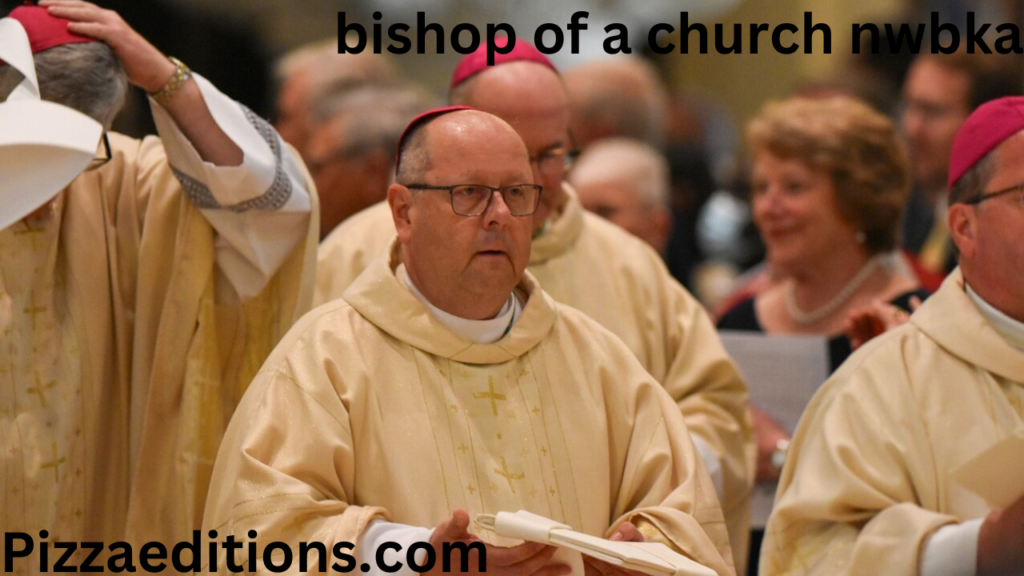In the tapestry of Christian ecclesiastical structures, the role of a bishop stands out as a cornerstone of spiritual leadership and administrative oversight. Within the Church NWBKA—a denomination with its unique traditions and organizational framework—the bishop serves as a pivotal figure, guiding the faithful and ensuring the church’s mission aligns with its foundational beliefs.
Historical Context of the Bishopric
The term “bishop” originates from the Greek word “episkopos,” meaning overseer or guardian. In the early Christian church, bishops were entrusted with the responsibility of leading local congregations, safeguarding doctrinal purity, and fostering communal unity. As Christianity expanded, the role of the bishop evolved, encompassing not only spiritual guidance but also administrative and sometimes political authority.
In many Christian traditions, bishops have been instrumental in shaping theological discourse, resolving doctrinal disputes, and representing the church in broader societal contexts. Their influence often extended beyond ecclesiastical boundaries, impacting social and cultural developments within their regions.
The Church NWBKA: An Overview
The Church NWBKA, while rooted in the universal Christian faith, has cultivated distinct practices and organizational structures that reflect its unique heritage. The acronym “NWBKA” signifies a specific regional or doctrinal identity, which influences the church’s liturgy, governance, and community outreach programs.
Central to the Church NWBKA’s identity is its commitment to fostering a close-knit community of believers who support one another in their spiritual journeys. This communal emphasis is reflected in the church’s various ministries, educational programs, and charitable initiatives aimed at uplifting both its members and the broader society.
Responsibilities of the Bishop in the Church NWBKA
The bishop in the Church NWBKA embodies a multifaceted role that intertwines spiritual leadership with administrative duties. Key responsibilities include:
1. Spiritual Leadership and Pastoral Care
At the heart of the bishop’s role is the spiritual well-being of the congregation. This involves leading worship services, delivering sermons that inspire and educate, and providing pastoral care to individuals facing personal challenges. The bishop serves as a shepherd, guiding the faithful through life’s complexities and nurturing their spiritual growth.
2. Doctrinal Oversight and Theological Education
Ensuring the integrity of the church’s teachings is paramount. The bishop oversees doctrinal matters, ensuring that interpretations of scripture align with the church’s theological foundations. This responsibility extends to facilitating theological education for clergy and laity, organizing seminars, and promoting continuous learning within the church community.
3. Administrative Governance
Beyond spiritual duties, the bishop manages the administrative functions of the Church NWBKA. This includes overseeing financial operations, property management, and the coordination of various church activities. The bishop ensures that resources are utilized effectively to further the church’s mission and that all operations adhere to established policies and ethical standards.
4. Ordination and Clergy Support
The bishop plays a crucial role in the ordination of new clergy, evaluating candidates’ suitability for ministry and providing mentorship. Supporting existing clergy through regular communication, professional development opportunities, and personal encouragement is also a vital aspect of the bishop’s responsibilities.
5. Community Engagement and Outreach
Reflecting the Church NWBKA’s commitment to societal betterment, the bishop spearheads community outreach initiatives. This involves collaborating with local organizations, addressing social issues, and leading charitable efforts to assist those in need. The bishop acts as a bridge between the church and the wider community, exemplifying the church’s mission in action.
Challenges Faced by the Bishop
Leading a religious institution in contemporary society presents numerous challenges:
- Navigating Societal Changes: As societal values and norms evolve, the bishop must address contemporary issues thoughtfully, ensuring the church’s responses are compassionate and aligned with its core beliefs.
- Maintaining Doctrinal Integrity: In an age of diverse interpretations and theological perspectives, upholding the church’s doctrinal purity requires vigilance and discernment.
- Fostering Unity: Balancing differing opinions within the congregation and promoting unity amidst diversity is a continual endeavor.
- Resource Management: Ensuring the church has the necessary resources—financial, human, and material—to sustain its ministries and outreach programs demands strategic planning and prudent stewardship.
The Bishop’s Vision for the Future
Looking ahead, the bishop of the Church NWBKA envisions a community that:
- Embraces Inclusivity: Welcoming individuals from all walks of life, reflecting the universal nature of the Christian message.
- Engages in Lifelong Learning: Encouraging continuous theological education and personal development among members.
- Expands Outreach Efforts: Broadening the scope of charitable initiatives to address emerging societal needs.
- Deepens Spiritual Practices: Fostering a culture of prayer, reflection, and active participation in the sacraments.
Conclusion
The bishop of the Church NWBKA stands as a beacon of faith, guiding the congregation through spiritual and temporal landscapes. Through a harmonious blend of tradition and contemporary relevance, the bishop ensures that the Church NWBKA remains a vibrant community, steadfast in its mission to embody the teachings of Christ in every facet of life.
